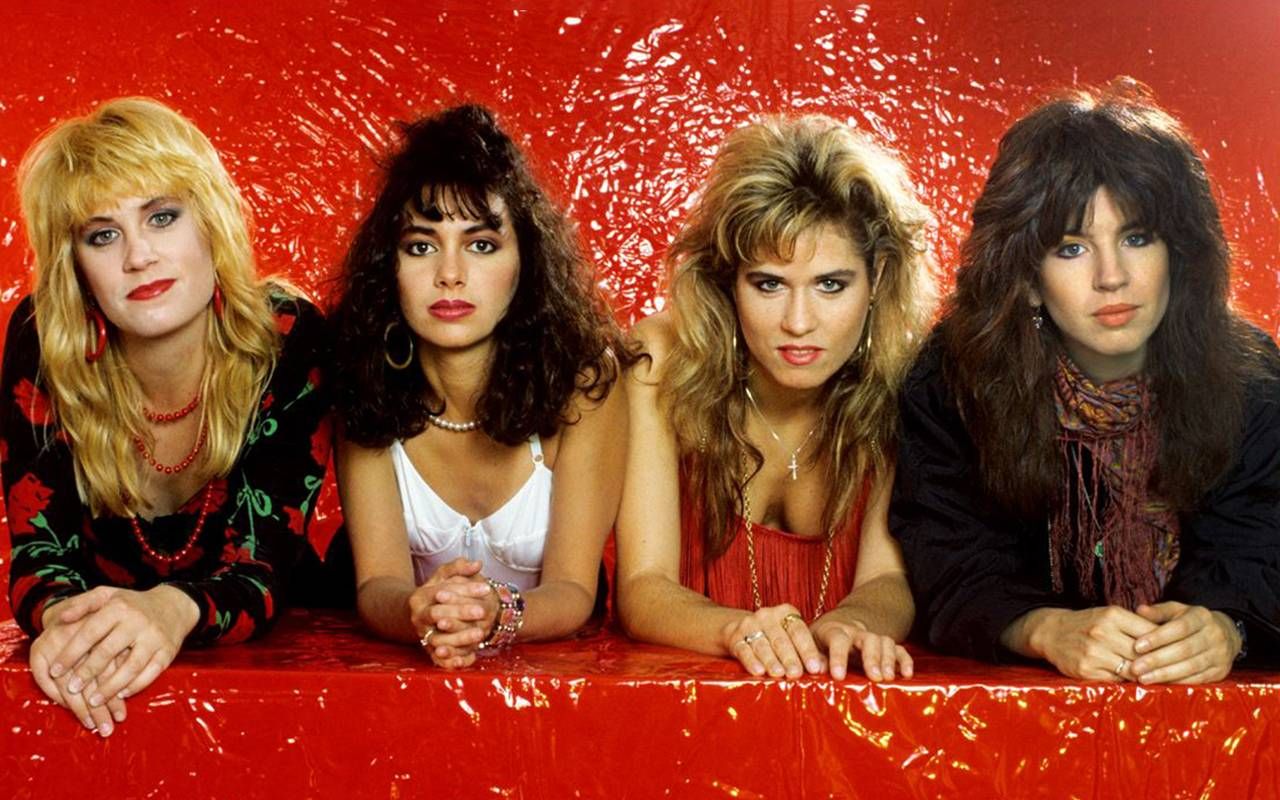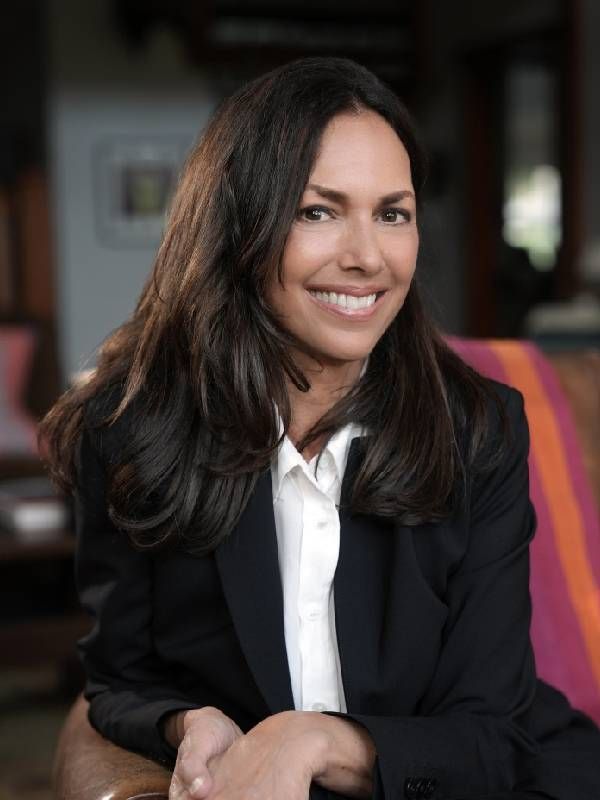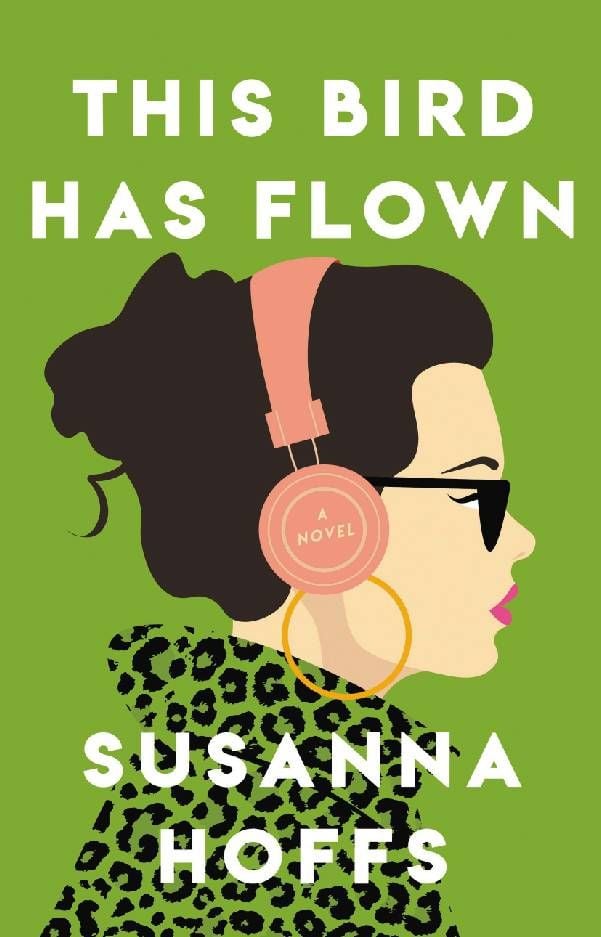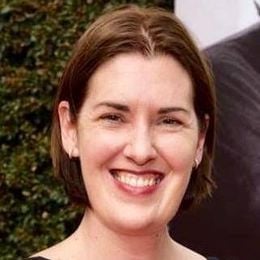Susanna Hoffs Proves It's Never Too Late to Fulfill a Lifelong Dream
The singer/songwriter from The Bangles discusses the writing of her debut novel, 'This Bird Has Flown,' and shares musical memories of Prince and Burt Bacharach
As Susanna Hoffs reflects upon her lengthy career, the theme that repeatedly pops up is her do-it-yourself ethos. Whether it's discussing The Bangles — the band she co-founded in 1981 after placing a want ad in a local paper, — her self-taught guitar playing or the writing of her debut novel, Hoffs proves she doesn't wait for things to happen, she makes them happen. "I just don't have the patience," she tells Next Avenue. "I keep wanting to make stuff."

A few years ago, the 64-year-old singer/songwriter — whose vocals can be heard on The Bangles' hits "Walk Like an Egyptian," "Eternal Flame" and the Prince-penned "Manic Monday" — decided it was time to write the book she'd longed to write. The result is "This Bird Has Flown,"a romantic comedy set in Oxford, England, that has hints of "Jane Eyre" and loads of musical references.
"Once I had the idea that I should follow this lifelong dream to write a novel, I started to piece together a story that was about the ghosts of our past."
Hoffs is overjoyed by the advance praise the book has received. (Kirkus Reviews says it's "a fun read that's perfect for lovers of pop music, classic books and romantic comedies.") She tells Next Avenue, "When anybody tells me they enjoyed the book it's thrilling because I was alone for so many years enjoying it myself, but not knowing if anybody would click with it. It feels good to have made something that brings anyone pleasure or joy."
In addition to the book, on April 7th she'll release "The Deep End," a self-financed album produced by the legendary Peter Asher. She's also currently writing a screenplay based on "This Bird Has Flown" for Universal Pictures. Maintaining this DIY ethos and spearheading creative projects is what keeps Hoffs going. "I just keep trying," she says. "I keep going up at bat and taking a swing and seeing if I can connect."
Next Avenue recently spoke with Hoffs about the writing of her novel, her passion for music, a memento she's kept from Prince and her love for the late Burt Bacharach.
This interview has been edited for clarity and length.
Congratulations on the book! How does it feel now that it's about to be shared with the world?
It feels good. It was such a labor of love writing the book. It was a lot of work, but it was pleasurable work. There was a little bit of fear going in, like, "Can I do this? Can I find the thing I need to tell the story I want to tell?" But it was a pure labor of love. I can't really express it any other way.
Facing a blank page is daunting. How did you know where to begin if you've never written a book before? What was your process?
That's such a good question. Once I had the idea that I should follow this lifelong dream to write a novel, I started to piece together a story that was about the ghosts of our past. Will they ruin our chances of finding love, having a good life or being able to succeed? I could apply what I know [to the main character], having spent most of my adult life as a musician. I know what it's like to have butterflies in your stomach and fear that you'll open your mouth, and nothing will come out, or it'll sound terrible or you'll play all the wrong chords. It's scary.

I've been reading my whole life. I love nothing more than being lost in fiction, out of my own head and in somebody else's story. I've read "Jane Eyre" over and over through the course of my life and then I read over and over again the Daphne du Maurier book "Rebecca," which I found similar themes in. So I kind of honed in on those themes. And then I thought, they're sort of Gothic romances in a sense and if I set the character in Oxford, Oxford itself becomes kind of a gothic setting for the book. Then the story unfolded with me having the pleasure of disappearing into my fantasy world and thinking, "Who else will be in the story?"
I love unreliable narrator characters and I thought there would probably be some fun, interesting but pretentious Oxford professor types that would be good to pepper in. And I did a lot of pleasurable research, watching British detective shows, any show set in Oxford, and rereading books that were set in Oxford.
Did you know what course the plot would take? Did you have an idea of how you wanted it to end, or were you figuring it out as you went?
It was a little of both, just letting my imagination drive things. That's the really interesting thing about writing a novel [and] why I'm trying to get everybody to write one [laughs], at least everyone who's always toyed with the idea, because some of it just springs into your imagination.
On morning walks I would listen to music. It would almost put me in this trance and trigger this creative flow, and my characters would just start talking to each other. Tom and Jane would be in his flat in Oxford, and I could see them like I was watching a movie and just court reporting into my phone what they were saying and doing and where they were in the space and what their expressions were. That was unendingly fun.
So, music was like a trigger for me, and that's why I found myself naming chapter headings after songs. Part of the love between Jane and Tom was that he loves music. That sealed the deal for her, when she sees [his] record shelves. Because there are people who are music addicts, like I am. Music is the beginning, middle and end of the day. I score my day with music. I was able to put some of that into the characters.
There are writers who will curate a playlist for their work-in-progress. Did you do anything like that?
Oh, yeah. It's on my Spotify page, actually. Music was so important because music moves me in a certain way, the same way that being immersed in the writing of the novel was moving. It wasn't dispassionate; it was very emotional writing the book. When Jane was up, I was up; if she was down, I was down. I was so invested in her journey and her point of view and her struggles and triumphs. It was a powerful experience.
At one point Jane describes herself as an "over the hill, one-hit wonder." Though you couldn't be described in those terms, have you had moments in your career where you felt like you'd peaked?
Oh my God, I constantly feel that way. We were so lucky that Prince fell in love with [The Bangles], and in particular the song "Hero Takes a Fall." The Bangles were in a studio called Sunset Sound Factory, which is the smaller sister studio to Sunset Sound, and we [The Bangles and Prince] were both working with a husband-and-wife team who were engineers. I was told that Prince said I should come over to Sunset Sound, the bigger of the two studios, and pick up a cassette from him, and that turned out to be "Manic Monday." I still have the cassette, the actual one.
"I was told that Prince said I should come over to Sunset Sound, the bigger of the two studios, and pick up a cassette from him, and that turned out to be 'Manic Monday.'"
That was an amazing moment in my life. I can remember singing it for the first time, just standing alone with a big microphone in front of my face. It was the right key and everything. We had the option to get his musical tracks that he had done on that demo recording of it, but we built it from the ground up ourselves. The first time that I really [sang] the vocal it felt like putting your foot in the glass slipper and it fits. As a singer, you always know when you're in the right key and the melody works, because it's not the case all the time, especially with somebody else's song. So it was really a magical moment.
Burt Bacharach passed away recently. What did his music mean to you? I can see an influence there between what he did and some of the stuff you've done with The Bangles and your solo work.
Burt and Hal David gave me permission to change "What's it all about, Alfie?" to "What's it all about, Austin?" for the "Austin Powers" movies [directed by Hoffs' husband, Jay Roach]. That was momentous that they approved that and endorsed it. And I sang "The Look of Love" for the first "Austin Powers."
I grew up in the '60s, so my mom had all the Dionne Warwick records and would play them perpetually. Those melodies and lyrics are so specific. There's no one who writes like they did. They're very sophisticated melodies and really sophisticated lyrics, and they tell stories and hit the emotion in every place that they can. I grew up on those songs. Those songs were a way to teach myself how to sing because they were such challenging and complex melodies. So yeah, I revere their music and it profoundly affected me.
You're publishing your first novel at age 64. Obviously, age should never dictate what anyone can or should do, but many people have a tendency to say, 'I can't write a novel, I'm too old.' We use age as an excuse. What advice would you have for people who have a dream, but think that age will hold them back?
"I started my book in the second half of my fifties ... I've never waited for permission to do a thing that I'm passionate about or desperate to do."
I started my book in the second half of my fifties. I've always been do-it-yourself. I've never waited for permission to do a thing that I'm passionate about or desperate to do. Like [with] The Bangles—there was no 'American Idol' at the time, there were no talent contests that I was aware of back in the '80s. And even if there were, that wouldn't have been my style. I just advertised myself in the want ads, and then I met Vicki [Peterson] and Debbi [Peterson], and we sealed the deal that night. I always describe it like running off to Vegas and getting married in an Elvis chapel, it was that fast. We shared a passion for The Beatles and harmony groups and melodic songs, and I just took a leap of faith. It was the right thing to do.
The same was true for the novel. I didn't take any writing courses. I was self-taught. I was self-taught as a musician. Just give me the recipe, I'll learn the recipe — the chords — and I'll memorize the melody and let's hope for the best. My son Jackson said, "Mom, tomorrow you're going to open that computer to a blank page. Just start." And that's what I did. I read that first page to my parents and my kids just to say, 'Look, I did it. It's a start.'

You just have to start somewhere. Don't wait for permission. If you're passionate, if it's a lifelong dream, just do it. You're gonna fall down. It's gonna take work. But it's pleasurable work. At least writing fiction is for me.
There's a film version of your book in development at Universal. Can you share anything about that?
Yes! I'm just doing some revisions on the screenplay. They hired me to write the screenplay myself, which is what I was hoping for, because I feel like I know the story better than anyone. I have written screenplays over the years, always co-writing. That's the other thing about the novel and the screenplay — this is a new chapter in my own journey as an artist. This is all new, to do something solo. I was always collaborating with other people. It's been a little scary to fly solo, but it's also so rewarding.
So, the book's coming out, the album's coming out, the movie will eventually come out. What's next?
I'm wanting to write another novel, because this was just too joyful of an experience. Extremely hard work, but I got so much pleasure from, as I said, disappearing into a fictional world and escaping my own ruminations. I'm addicted to it now. I just want to keep doing it.

Read More

